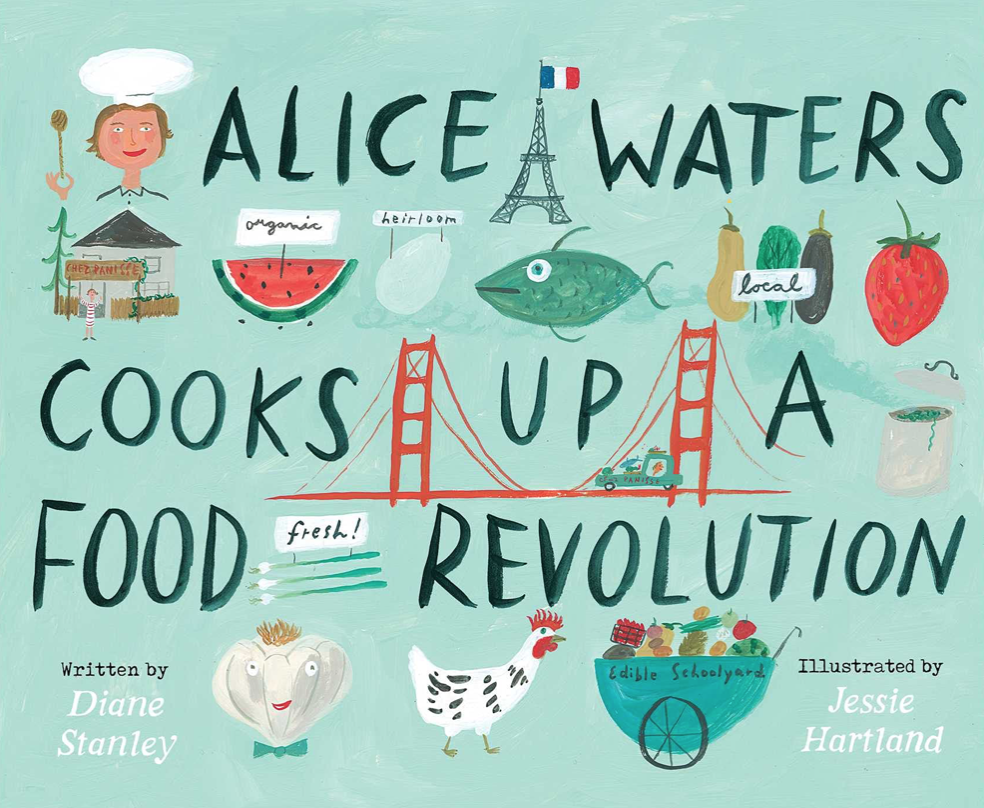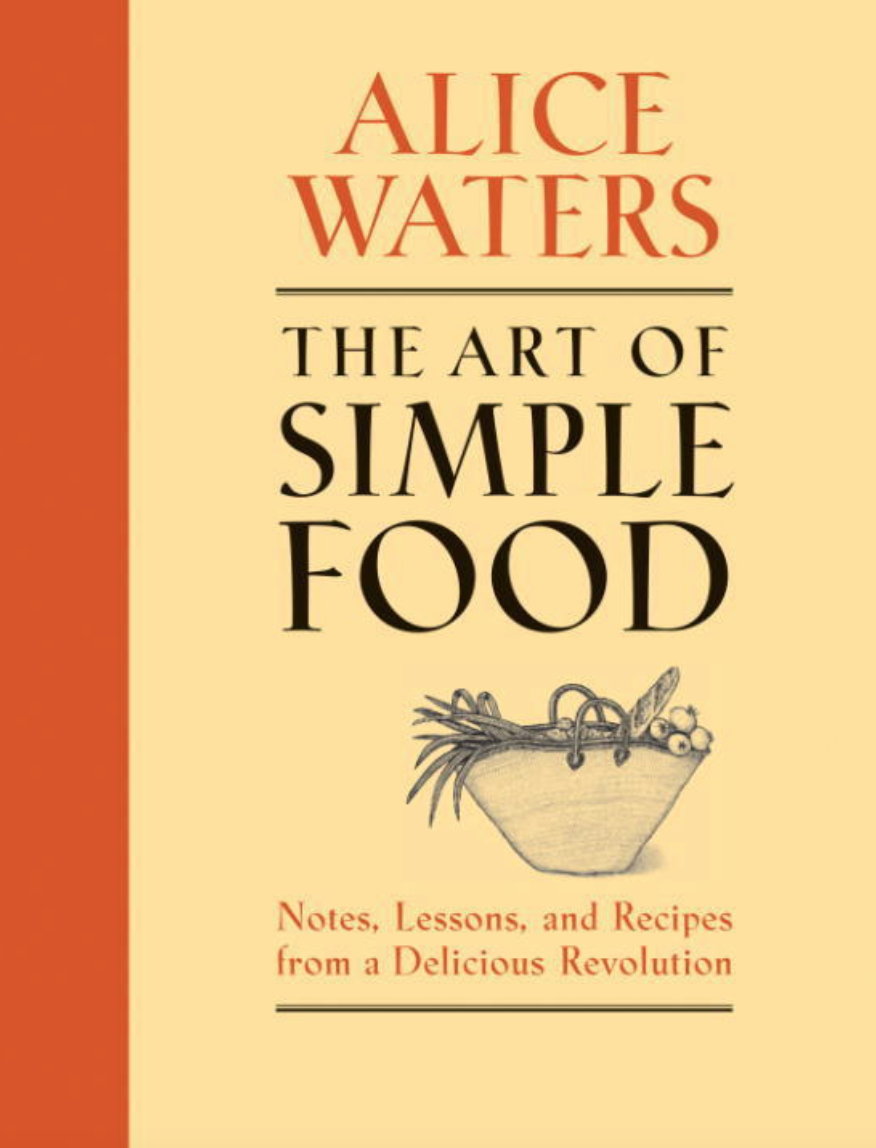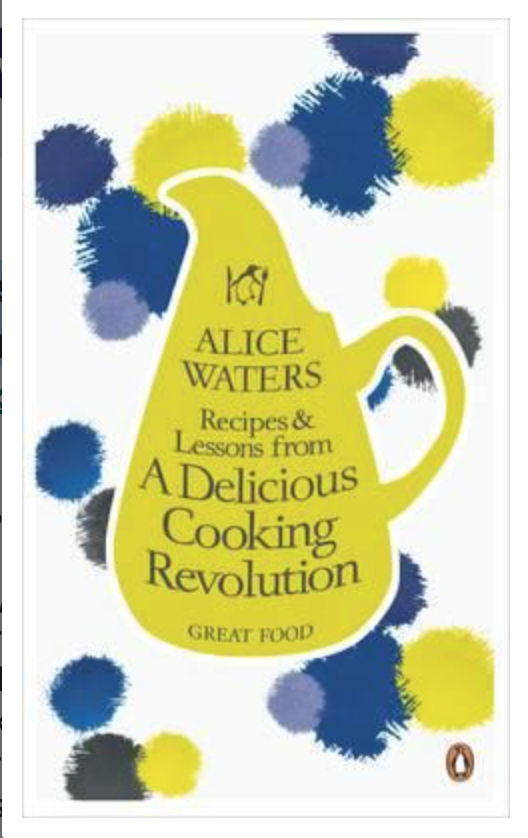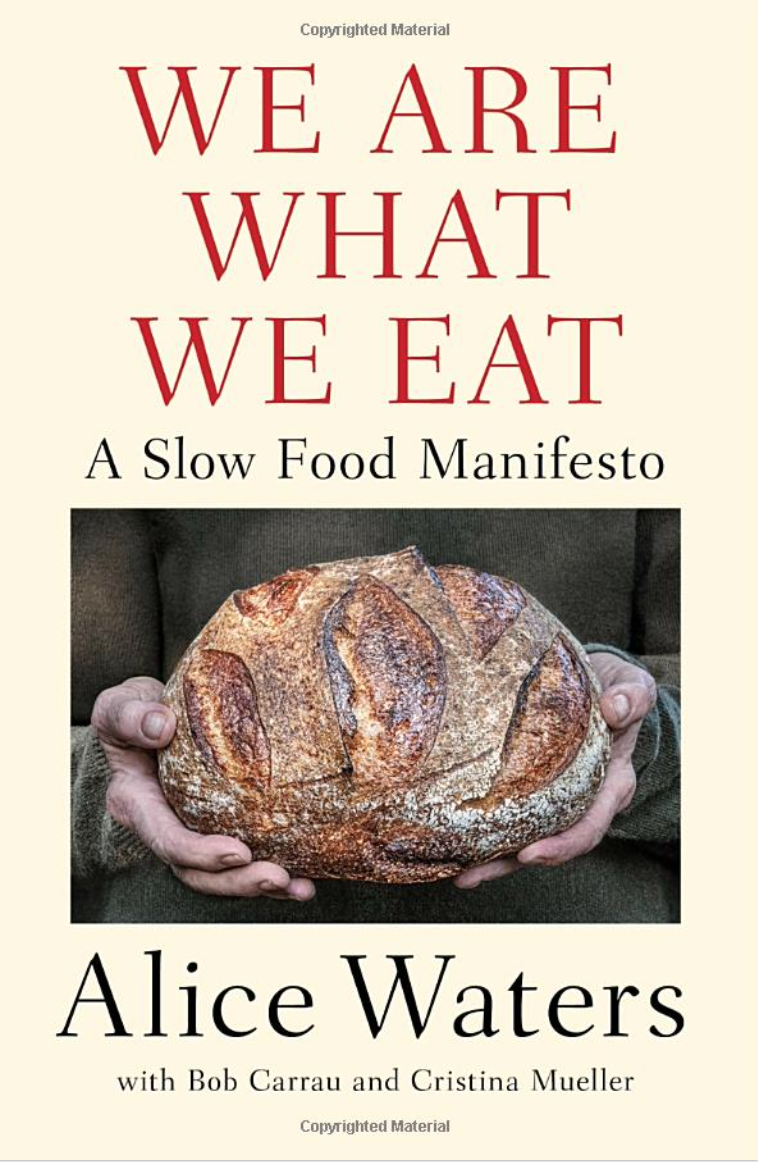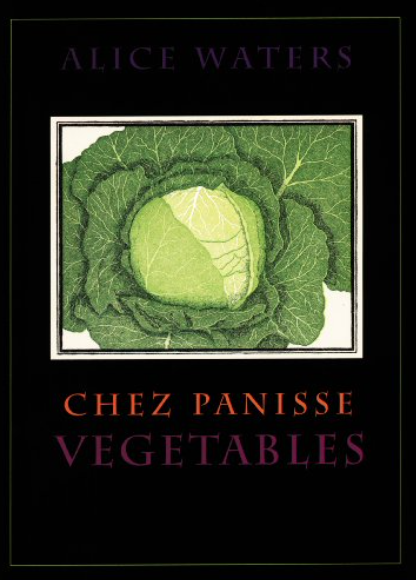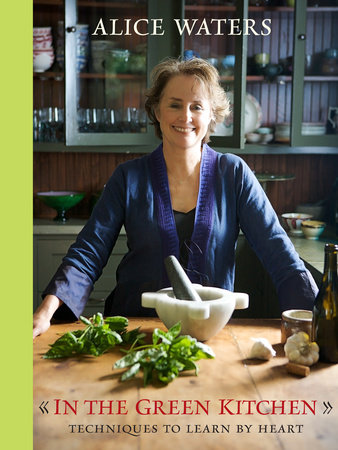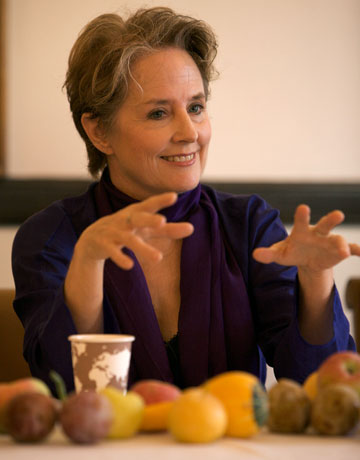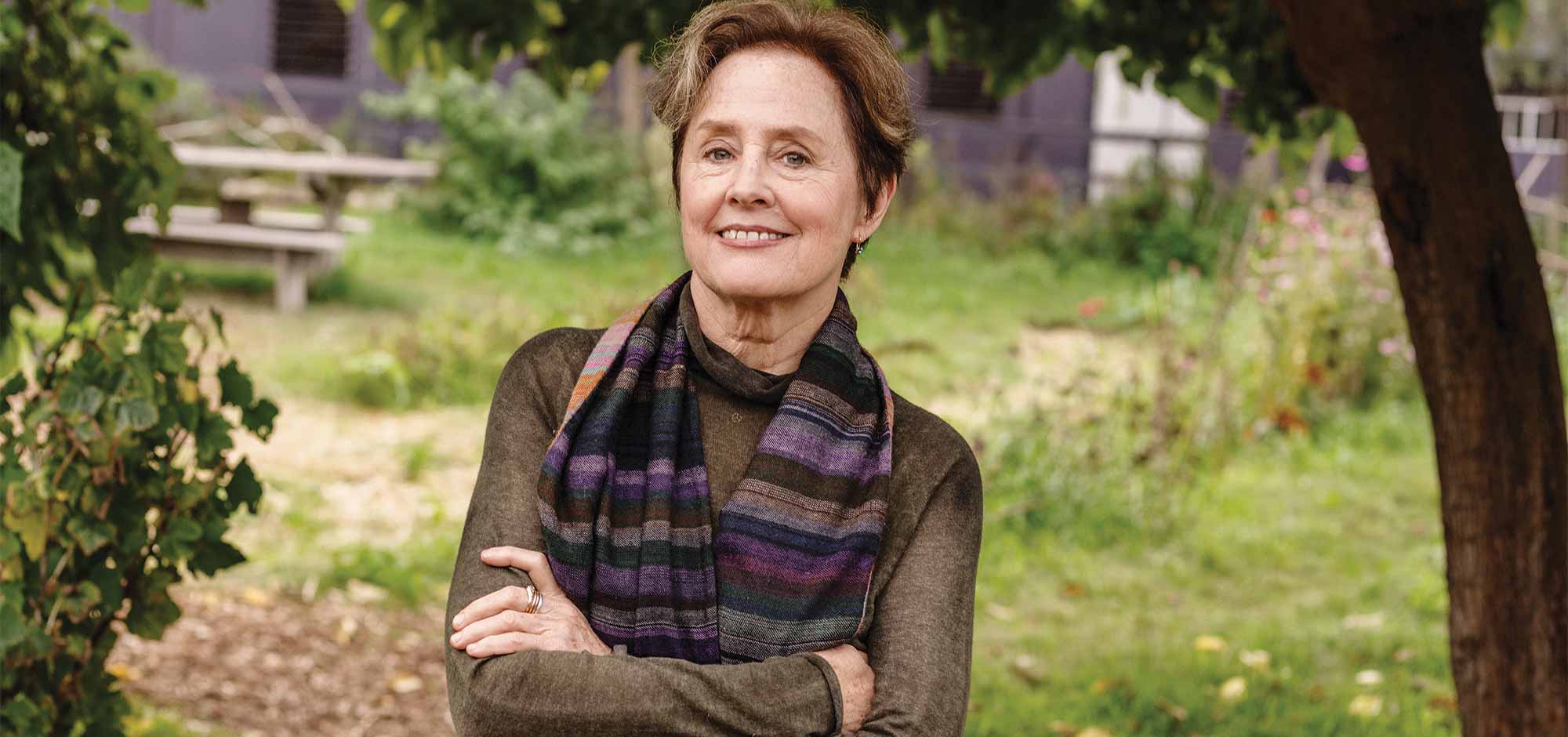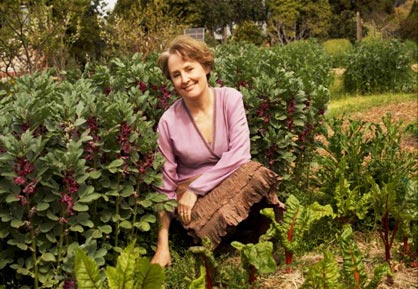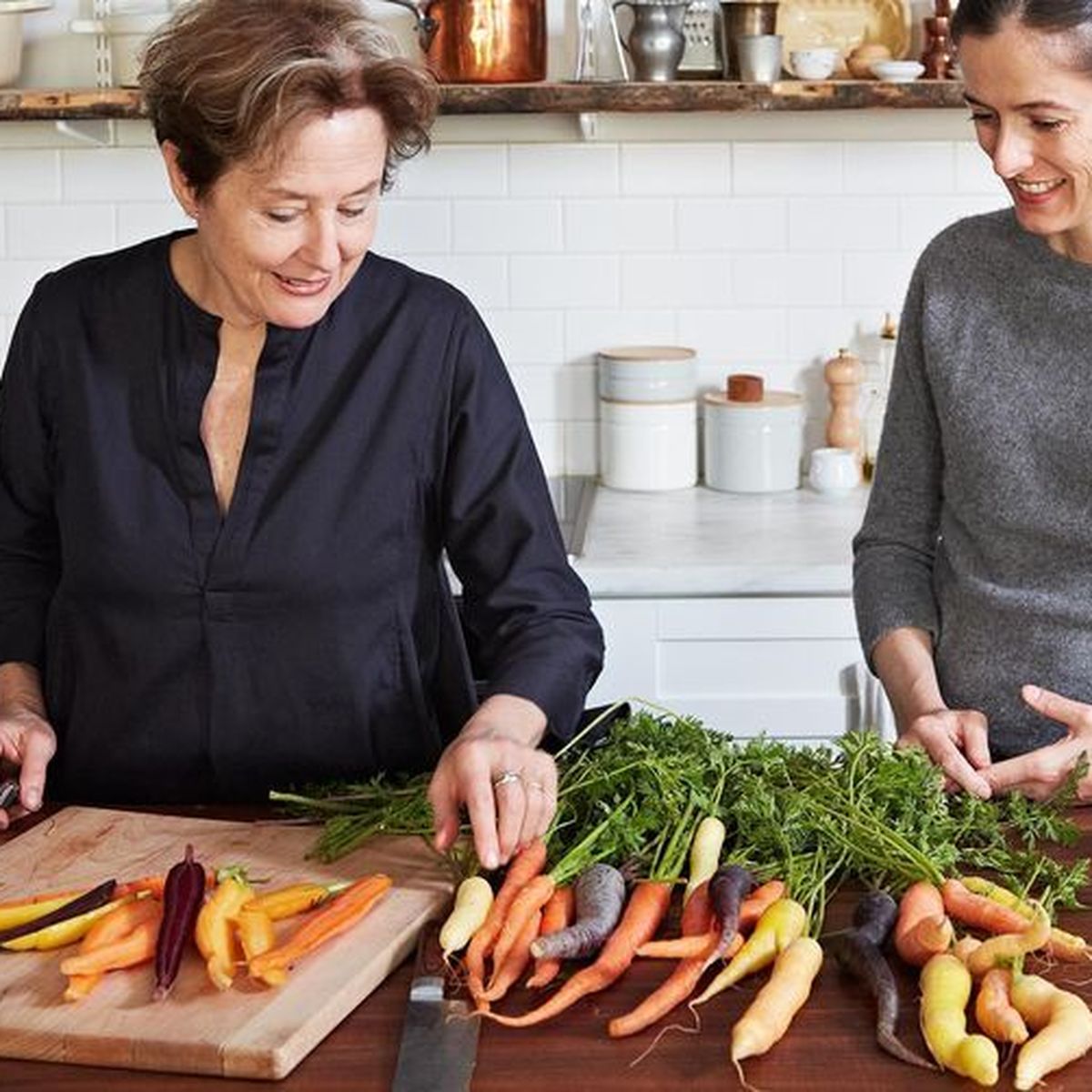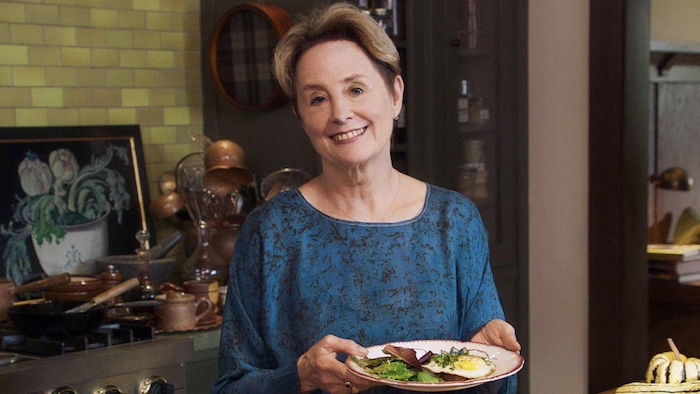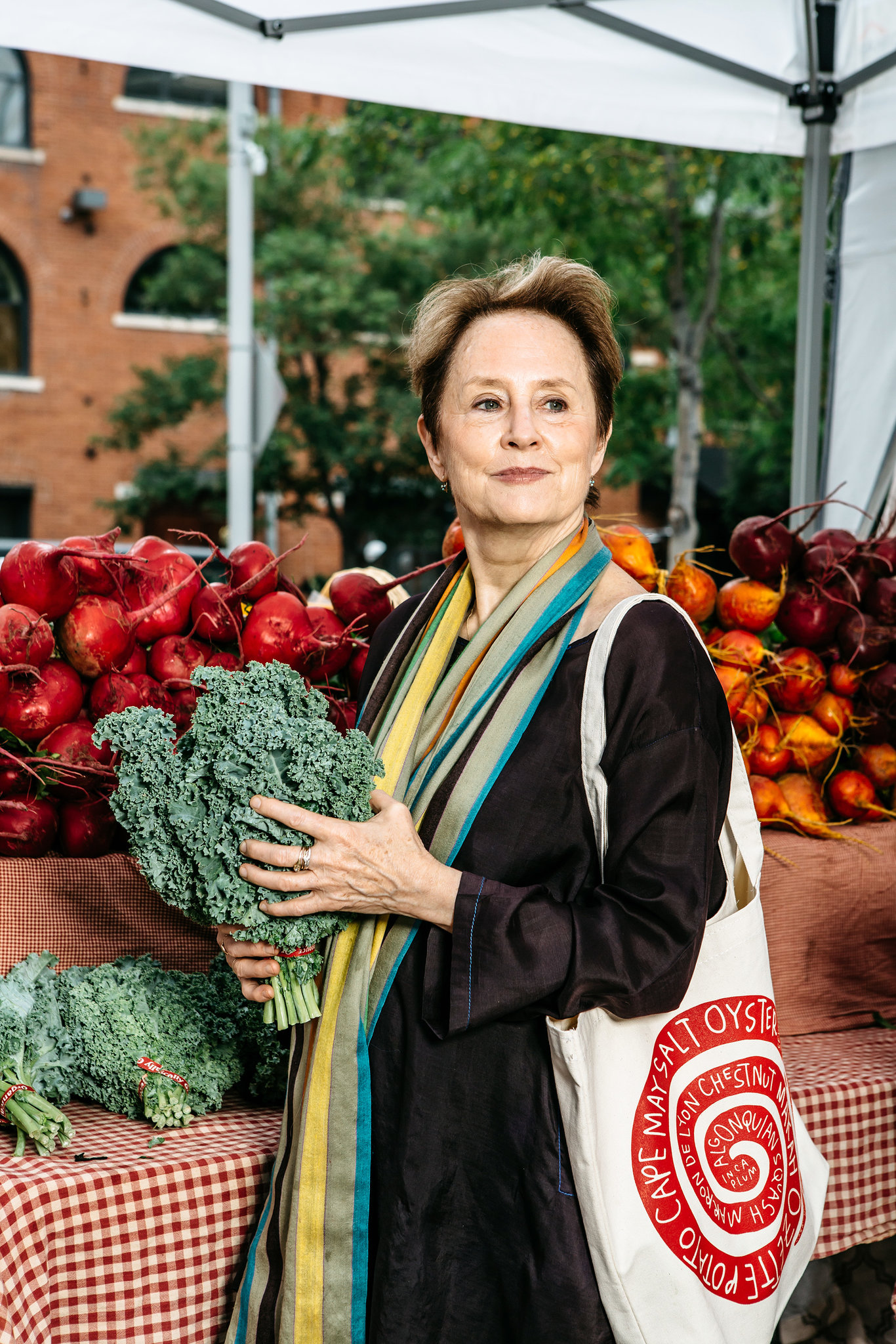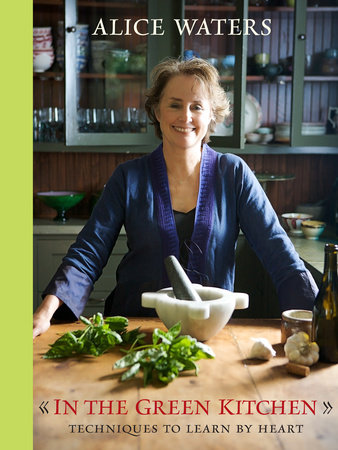Biography
Alice Waters, chef, author, and the proprietor of Chez Panisse, is an American pioneer of a culinary philosophy that maintains that cooking should be based on the finest and freshest seasonal ingredients that are produced sustainably and locally. She is a passionate advocate for a food economy that is “good, clean, and fair.” Over the course of nearly forty years, Chez Panisse has helped create a community of scores of local farmers and ranchers whose dedication to sustainable agriculture assures the restaurant a steady supply of fresh and pure ingredients.
In 1996, Waters’s commitment to education led to the creation of The Edible Schoolyard at Berkeley’s Martin Luther King, Jr., Middle School: a one-acre garden, an adjacent kitchen-classroom, and an “eco-gastronomic” curriculum. By actively involving a thousand students in all aspects of the food cycle, The Edible Schoolyard is a model public education program that instills the knowledge and values we need to build a humane and sustainable future. The program is nationally recognized for its efforts to integrate gardening, cooking, and sharing school lunch into the core academic curriculum. Alice established the Chez Panisse Foundation in 1996 to support the Schoolyard and encourage similar programs that use food traditions to teach, nurture, and empower young people. The success of The Edible Schoolyard led to the School Lunch Initiative, whose national agenda integrates a nutritious daily lunch and gardening experience into the academic curriculum of all public schools in the United States.
Waters is Vice President of Slow Food International, a nonprofit organization that promotes and celebrates local artisanal food traditions and has 100,000 members in over 130 countries. She is the author of eight books, including The Art of Simple Food: Notes and Recipes from a Delicious Revolution.
Alice Waters’s honors and affiliations include:
- Inductee, California Hall of Fame, 2008
- Co-recipient, with Kofi Annan, Global Environmental Citizen Award, 2008
- Member, American Academy of Arts and Sciences, 2007
- Lifetime Achievement Award, Restaurant magazine’s World’s 50 Best Restaurants, 2007
- Founder, Sustainable Food Program at the American Academy in Rome, 2006
- Force for Nature Award, Natural Resources Defense Council, 2004
- Best Restaurant in America, Gourmet magazine, 2001
- Founder, Yale Sustainable Food Project, Berkeley College, Yale University, New Haven, Connecticut, 2003
- Vice President, Slow Food International, Bra, Italy, 2003
Videos
In Conversation with Alice Waters
Alice Waters On The Salad That Made Her The First Woman To Win The James Beard Award | TIME
Alice Waters & Ruth Reichl: The Art of Simple Food
The Mother Of Slow Food
Edible Education 103: Edible Education, by Alice Waters
Speech TopicsExpand each topic to learn more
A speech for parents, educators, and community leaders interested in introducing the edible schoolyard curriculum into the classroom, Alice discusses the importance of edible education in empowering students with the knowledge and values to make food choices that are healthy for them, their communities, and the environment.
Since opening its doors in 1971, Chez Panisse has been considered a pioneer of the farm to table movement. Inspiring American cuisine for over four decades, Chez Panisse maintains its same dedication to sourcing only the best local, seasonal ingredients in determining its menus. In this speech, Alice reflects upon her inspiration in starting the restaurant – a desire to recreate the food and culture she experienced while studying in France – and shares her personal stories about the beginnings of what would become one of America’s most notable restaurants.
How the values of our Fast Food World - efficiency, availability, and cheapness – have influenced our society. Are Slow Food values the antidote to our current culture of convenience? In this speech, Alice discusses the principles of Slow Food – sustainability, seasonality, and community – in creating a “delicious revolution.
Testimonials
Booksby Alice Waters
Blog Posts

Resilience Lessons From an NFL Player Who Turned Life into Magic
Resilience keynote speaker Jon Dorenbos shares how to turn adversity into action through mindset, forgiveness, and authentic leadership strategies.
Read More
The Top 3 Keynote Speaker Trends That Will Define Your Events in 2026
2026 event planning starts now: discover the keynote speakers and themes that transform audiences through AI ethics, psychological safety, and leadership.
Read More
How Pros Stay Steady To Engage & Interact With Their Event’s Audience
Stop second-guessing your audience's reactions. Learn how veteran emcee Scott Bloom reads rooms without losing confidence during live events.
Read More
The One Life Question That Separates Victims From Victors
One powerful question changed how keynote speaker John O'Leary chose to live his life. Discover the victim-or-victor framework that works for any challenge.
Read More
Insights from Ross Bernstein on What Champions Do When Nobody’s Watching
Learn how champions think differently and build winning habits that transform teams from talented to unstoppable with peak performance speaker Ross Bernstein.
Read More
7 Year-End Lessons From Keynote Speaker Every Event Planner Needs Before 2026
Learn 7 powerful year-end lessons from top keynote speakers to transform your event planning strategy and personal growth in 2026.
Read MoreRelated Education Speakers
Get in TouchContact US
Fill out the form so we can best understand your needs.
A representative from The Keynote Curators will reach out to you.

